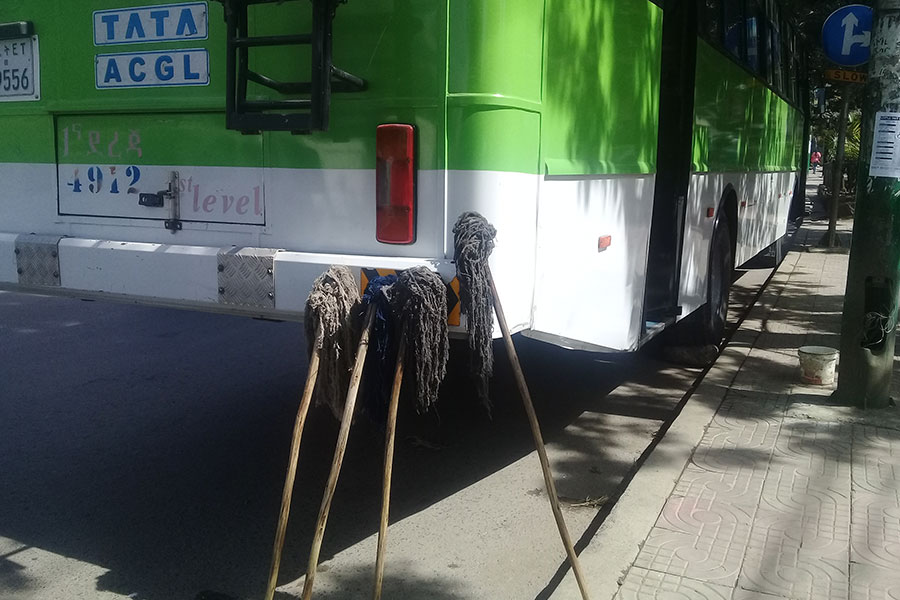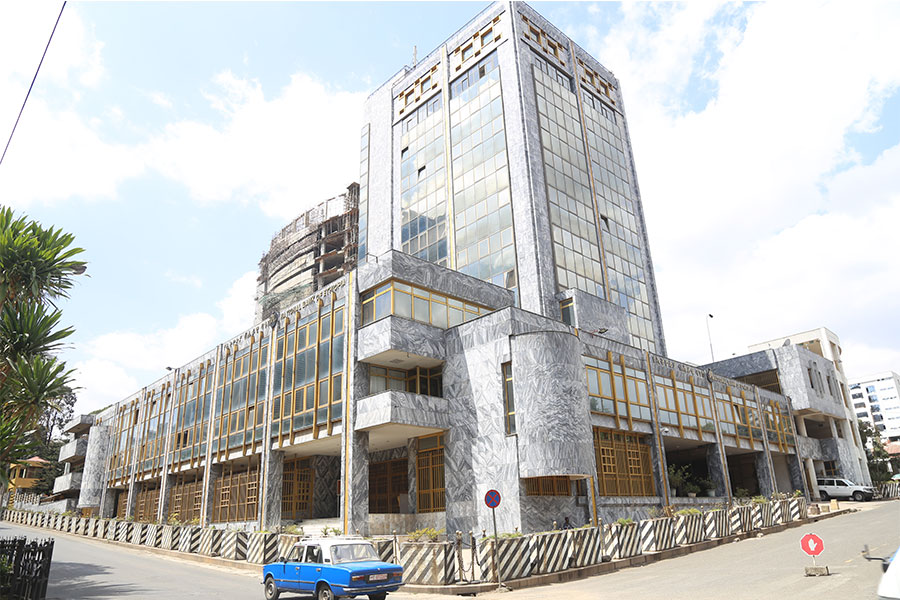
In-Picture | Sep 14,2024
Dec 10 , 2018
By Hanna Haile
In a debate about how the government can encourage entrepreneurship, a statement recurrently made was floated.
“At the end of the day, businesses just want to make money. They don’t care about anyone else,” it was said.
But what is wrong with making money?
We hear of such sentiments whenever the issue of local business is raised. And it seems, money, despite the paradox of most people’s aspiration to make a great deal of it, is not exactly considered honourable. Yet maybe this relationship we have with money is the reason why we continue to strive for less at times.
Life is not made of handouts - we have to pay for things what they are worth. And asking businesses to function like nonprofit organisations is insulting. Our country needs to build healthy businesses that can profit by competing, attracting and providing customers and clients with good services and products.
Who do we benefit when we praise those who have given us service for no money?
Some suggest that the relationship that we have with money can best be described with a culture of self-denial, best expressed in the Amharic word Temesgen, which refers to being grateful for what is already at hand.
There are those that think this mentality does have an effect on our work culture and understanding of money. The superstitious assumption that if one is not thankful for the gains of today, they will lose what is already owned, is hard.
Often those that own businesses are opposites. Some are greedy, willing to do the minimum task for the maximum possible price, while others actually do their best but fail to request enough compensation for their work. Yet it is those in between who are getting the wrath of the public.
A company with a good business model can do more to uplift our country than any non-profit organisation. As a social worker, I have seen many become dependent on handouts. Yet what communities needed was to regain their pride at providing for themselves. Any business that gives the opportunity of employment is pushing our country forward.
A local businessman once shared with me the difficult path of his life when he was younger, reminiscing about studying on the street with street lights as his family’s home did not have access to electricity. He even remembers wearing brand new shoes for the first time at Addis Abeba University.
He is an older man now with two children in their late twenties. And today in both his businesses he employs those living on the streets. He gives them a place to live as they train to be service providers, and most have either stayed with him or started their own business. He would like to do more, he mentions. But through him, many have changed their lives. And he is among the few who turn in millions from his profitable businesses.
Money cannot be the enemy. What matters is the relationship with it and the value we choose to give it in our lives. Money offers opportunities, and while we should not make decisions solely based on it, we should make sure that it plays a factor in our decision-making.
The pragmatism of quitting a job to take on opportunities that offer better pay is admirable. But such decisions need to be squared with a realisation that we need to make long-term investments that contribute to our self-improvement and support our community.
We are capable of living extraordinary lives. Choosing the path less traveled will help us feel a little more fulfilled, even if we are wealthy in the end.
PUBLISHED ON
Dec 10,2018 [ VOL
19 , NO
972]


In-Picture | Sep 14,2024

View From Arada | Jul 27,2024

Covid-19 | Mar 21,2020

Viewpoints | Dec 28,2019

Viewpoints | Feb 12,2022

Radar |

Fortune News | Dec 11,2021

Fortune News | Sep 21,2019

Radar | Jun 11,2024

Radar | Sep 14,2025

Photo Gallery | 177223 Views | May 06,2019

Photo Gallery | 167430 Views | Apr 26,2019

Photo Gallery | 158058 Views | Oct 06,2021

My Opinion | 136970 Views | Aug 14,2021
Commentaries | Oct 25,2025

Dec 22 , 2024 . By TIZITA SHEWAFERAW
Charged with transforming colossal state-owned enterprises into modern and competitiv...

Aug 18 , 2024 . By AKSAH ITALO
Although predictable Yonas Zerihun's job in the ride-hailing service is not immune to...

Jul 28 , 2024 . By TIZITA SHEWAFERAW
Unhabitual, perhaps too many, Samuel Gebreyohannes, 38, used to occasionally enjoy a couple of beers at breakfast. However, he recently swit...

Jul 13 , 2024 . By AKSAH ITALO
Investors who rely on tractors, trucks, and field vehicles for commuting, transporting commodities, and f...

Oct 25 , 2025
The regulatory machinery is on overdrive. In only two years, no fewer than 35 new pro...

Oct 18 , 2025
The political establishment, notably the ruling party and its top brass, has become p...

Oct 11 , 2025
Ladislas Farago, a roving Associated Press (AP) correspondent, arrived in Ethiopia in...

Oct 4 , 2025
Eyob Tekalegn (PhD) had been in the Governor's chair for only weeks when, on Septembe...

Oct 25 , 2025 . By YITBAREK GETACHEW
Officials of the Addis Abeba's Education Bureau have embarked on an ambitious experim...

Oct 26 , 2025 . By YITBAREK GETACHEW
The federal government is making a landmark shift in its investment incentive regime...

Oct 26 , 2025 . By NAHOM AYELE
The National Bank of Ethiopia (NBE) is preparing to issue a directive that will funda...

Oct 26 , 2025 . By SURAFEL MULUGETA
A community of booksellers shadowing the Ethiopian National Theatre has been jolted b...